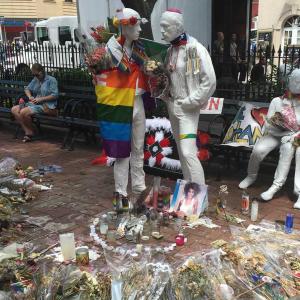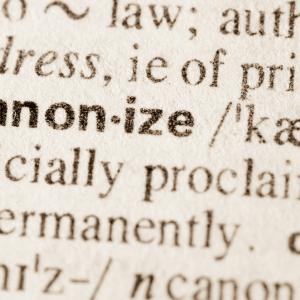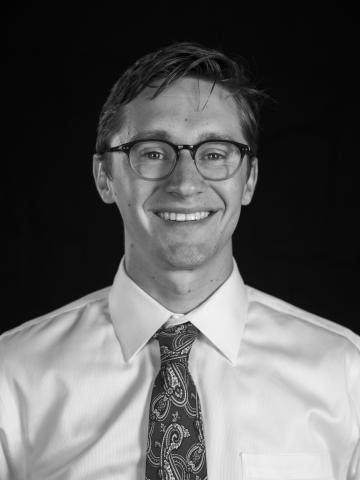
Ryan Hammill may be the Online Assistant, but he still uses a flip phone without internet access. He comes from that technology backwater known as the San Francisco Bay Area, where he grew up playing baseball, avoiding yard work, and reading with a flashlight under the covers. After high school he lived with monks in the French village of Taizé. Ryan graduated from Occidental College in 2015 where he majored in history and took enough classes for a Russian minor, but didn’t realize it and so never submitted the papers. He was also part of InterVarsity Christian Fellowship at Occidental, an experience that helped him to combine his concern for justice with the evangelical faith of his upbringing. He is thrilled and honored that he gets the chance to continue to think through these issues with Sojourners.
You can also follow him on Twitter as he tweets from his desktop computer @ryanahammill.
Posts By This Author
Can the Taizé Style of Worship Aid Racial Healing in St. Louis?
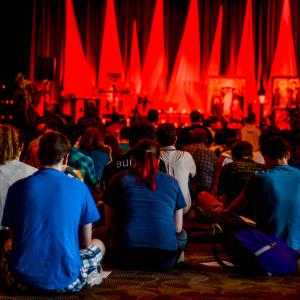
Taizè prayer at St. Louis University. Image via Katherine Blanner
Participants joined with local religious leaders and city residents to walk through the city, stopping at various places of worship to sing and pray, in a demonstration of unity. The Walk of Trust ended on the campus of Saint Louis University, where Archbishop Robert Carlson of St. Louis, who first conceived of the meeting, spoke alongside the Rev. Dr. Traci Blackmon, a pastor in Florissant, Mo., and a leading voice in the response to Michael Brown’s death.
Christianity Can't Spell Social Good Without 'God'
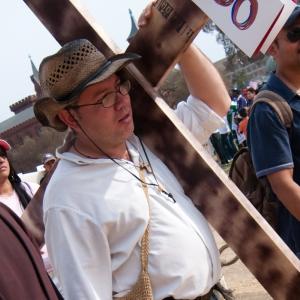
Immigrants' rights activists rally on the National Mall in Washington, D.C. Image via Ryan Rodrick Beiler/Shutterstock.com
If you start picking and choosing what parts of Jesus’ life to believe and which to disregard, this line of reasoning breaks down. And yet our post-Christian culture agrees, broadly speaking, that caring for outcasts is a good thing to do. After all, Kristof writes with this assumption in the pages of The New York Times. Why is this?
Black and Blue
In many neighborhoods, police are feared as "occupying forces." Some are working to change that from the inside.

FeyginFoto / Shutterstock
IN DECEMBER 2014, the white police chief of Richmond, Calif., showed up at a local protest against police brutality. The ethnically diverse city is infamous for its violent Iron Triangle neighborhood, but Chief Chris Magnus didn’t arrive at the protest to bust heads, or even to merely “keep an eye on” the assembly. Instead, he held a sign. It read, quite simply, “Black Lives Matter.”
The reaction was quick and intense—even the Richmond Police Officers Association issued a statement claiming Magnus had broken state law by “politicking” in uniform.
“I can understand how it is hard for a lot of police officers, especially given what has gone on in some of the protests,” Magnus said, according to the San Francisco Chronicle. Nevertheless, he doesn’t regret holding the sign. “I’d do it again,” he said. “[T]he idea that black lives matter is something that I would think that we should all be able to agree upon.”
Like Richmond’s police officers denouncing Magnus, negative national reactions to the Black Lives Matter movement have come quickly and decisively, replete with slogans such as “All Lives Matter” and “Blue Lives Matter,” which refers to police officers.
Churches with “Black Lives Matter” signs have seen the word “black” defaced. Darren Wilson, the Ferguson police officer who shot and killed Michael Brown, received hundreds of thousands of dollars from online donors, as did George Zimmerman, the neighborhood-watch vigilante who killed Trayvon Martin.
In May, Louisiana took “Blue Lives Matter” to the next level when Gov. John Bel Edwards signed the “Blue Lives Matter” bill that added public safety workers to protected-class status for hate crimes legislation, thereby joining ethnic, religious, and sexual minorities. And in July, following the police shootings of Alton Sterling and Philando Castile and the sniper killing of five Dallas police officers, protesters in Baton Rouge were met with armored tanks, percussion weapons, and the threat of being charged with the “hate crime” of obstructing police in response to their nonviolent actions.
This is the politics of polarization. Discussions on race in the United States too often behave according to Newton’s third law of motion: “To every action there is always opposed an equal reaction.” It’s true within the church as well: While 82 percent of black Protestants believe that police killings are part of a pattern, 73 percent of white mainline Protestants say the opposite—to them, Michael Brown, Eric Garner, Tamir Rice, Sandra Bland, Freddie Gray, and the hundreds of other unarmed black Americans killed by police are “isolated incidents.”
Do Churches Actually Help Solve Social Problems? Americans Increasingly Say 'No'
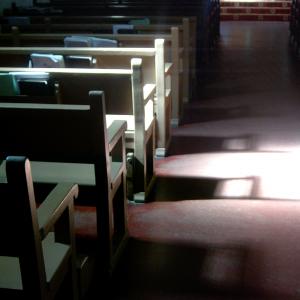
Image via jennifer leigh selig / Shutterstock.com
New research from Pew suggests that Americans have become less likely to believe that religious institutions can play an important role in confronting social problems.
And while some of the decline in trust in religious congregations likely originates in the “rise of the nones,” or the religiously unaffiliated, that alone does not explain this crisis of confidence. This is not really a story about secularization. After all, between 2008 and 2016, both Protestants and Catholics showed double digit declines in percentage of people who believe houses of worship contribute to social reform. The percentage decline was only slightly higher among the religiously unaffiliated.
Dallas Memorial Service Features Two Presidents and Discussion of Race in America
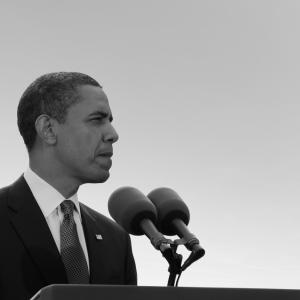
Image via Filip Fuxa / Shutterstock.com
President Obama delivered a lengthy address in Dallas in honor of the five police officers who died in the shooting that occurred in the city last week.
He was joined onstage at the memorial service by President George W. Bush, a resident of Dallas.
“Today the nation grieves,” Bush said, in his relatively short and mostly apolitical speech. “But those of us who love Dallas and call it home have had five deaths in the family.”
Stonewall Inn Is Now the First-Ever National Monument to the Gay Rights Movement
SCOTUS: Domestic Abusers Can't Have Guns
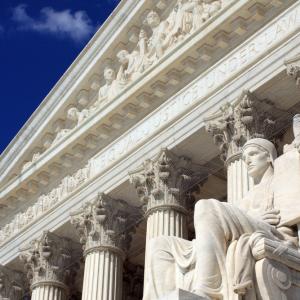
Photo via J Main / Shutterstock
The 6-2 ruling in Voisine v. U.S. upholds a federal law that prohibits any person convicted of a “misdemeanor crime of domestic violence” from owning a firearm.
The case was brought by two men convicted of misdemeanor assault under state law and later charged with federal crimes for possessing firearms. The plaintiffs, Stephen Voisine and William Armstrong, argued that their crimes did not count under federal statute because their crimes were reckless, not intentional or knowing.
Supreme Court Strikes Down Texas Abortion Law
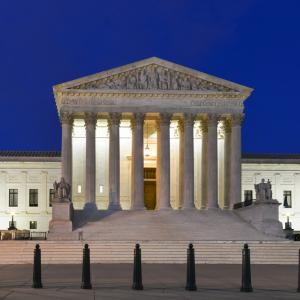
Photo via Orhan Cam / Shutterstock
The Supreme Court struck down Texas’ restrictive abortion laws on June 27 in one of the most important abortion-related cases in years.
The Court ruled 5-3 in the case known as Whole Woman’s Health v. Hellerstedt, which served to clarify the 1992 decision Planned Parenthood v. Casey. That case concluded that while the states are free to regulate abortion, they cannot place an “undue burden” on women’s constitutional right to abortion.
5 Things to Know About Trump's Meeting with Evangelicals
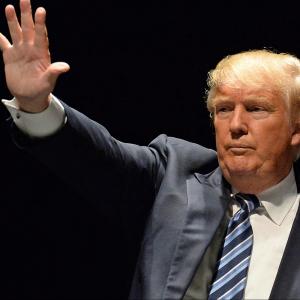
Donald Trump salutes supporters at the Peabody Opera House in Downtown St. Louis in March.Gino Santa Maria / Shutterstock.com
While evangelicals have traditionally been an important part of the Republican base, Trump’s candidacy has exposed some fissures. The combination of questionable investments, vulgar and hateful rhetoric, widely-publicized affairs, and Biblical illiteracy has caused some evangelical leaders to denounce Trump, even as others have voiced their support.
Obama to Flint Residents: 'I've Got Your Back'
Screenshot via The White House
President Obama came to Flint, Mich. on May 4 to address the ongoing water crisis in the city, where he gave a rousing speech to an auditorium full of residents.
“Flint’s recovery is everybody’s responsibility,” Obama said in his speech. “And I’m going to make sure that responsibility is met.”
The Day Bin Laden Died
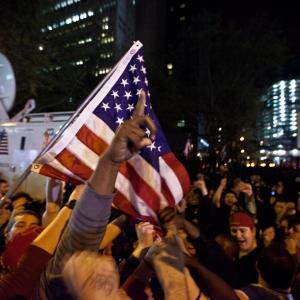
Image via MarineCorps NewYork / flickr.com
On first thought, cheering someone’s death sounds vile. But if I’m honest, I’ve never been so gripped by the sentiment of patriotism as on the day that I sat around a table with more than a dozen men, only one of whom — besides myself — was American. This was the day that President Obama announced that Osama bin Laden had been killed.
Paul Ryan's 'Millennial Town Hall' Talks Mass Incarceration, Poverty, and Whether People Should Support Republicans
Screenshot via Speaker Paul Ryan / Youtube.com
Speaker of the House Paul Ryan has said repeatedly that he isn’t running for president, but that hasn’t stopped him from making numerous public appearances to talk about his vision for the Republican Party and the United States.
Could Pope Francis Be Ready to Throw Out Just War Theory?
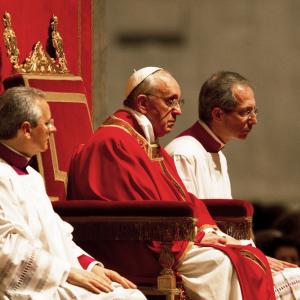
Image via Philip Chidell / Shutterstock.com
For over 1,500 years, the Catholic Church has promoted “just war theory” as a way to determine in what cases a war can be considered morally justifiable. But all of that may change.
In an interview, Cardinal Peter Turkson of Ghana said that it is “plausible” that Pope Francis may write a new encyclical updating Catholic teaching on war and peace, an update that could include a retreat from just war theory. Francis’ last encyclical, “Laudato Si,” made waves for its condemnation of capitalism and call to address climate change.
Dorothy Day Gets One Step Closer to Sainthood
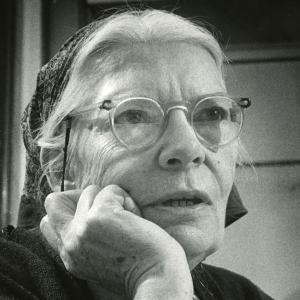
Image via Jim Forest / flickr.com
The famous Catholic Worker activist Dorothy Day once remarked, “Don’t call me a saint. I don’t want to be dismissed that easily.” That hasn’t stopped the Archdiocese of New York, however, from moving forward with a “canonical inquiry,” the next step required to become eligible for beatification and then canonization, when a figure officially becomes a saint.
Supreme Court May Have Found Way Forward in Contraception Case
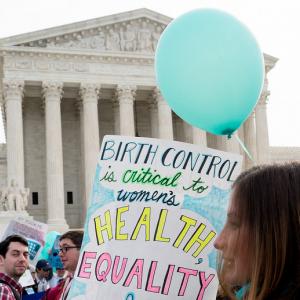
Image via Victoria Pickering / flickr.com
In the case, various religious groups are suing the federal government over the HHS mandate, the requirement to provide contraception coverage in employees’ health insurance plans. There is currently an opt-out option, but the Little Sisters of the Poor, the co-plaintiffs, and their supporters do not believe that the opt-out is strong enough and thus that they are still complicit in providing contraception. They say, therefore, that the HHS mandate is a violation of their religious freedom.
The Wuerl Effect
Washington's Archbishop On Being a Witness to History
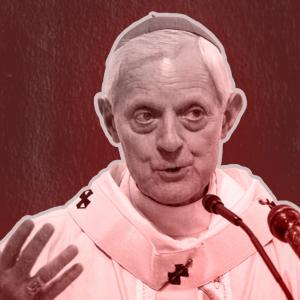
Illustration by JP Keenan/Sojourners. Images: Giulio Napolitano / Raul654, Shutterstock, Wuerl image: Public domain.
If Cardinal Wuerl has found himself at the heart of contemporary Catholic history, it hasn’t been on purpose. He’s been searching, from Mass to committee meeting, from fundraising event to coffee break, to get to the heart of something else.For one reason or another, Donald Wuerl has found himself present for many of the most important events in the Catholic Church in the past half-century: He was in Rome during Vatican II; he orchestrated a landmark diocesan reorganization in Pittsburgh; he anticipated — and battled — the Vatican over the clerical abuse crisis in the United States.
With a career where he has ended up in the right place at the right time over and over again, some might dismiss Wuerl as a climber. But his determination to follow his conscience on difficult issues — and empower others to do the same — shows that he has been searching for something deeper than prestige.
Why Care About the Saints?
When I talk to the Christians whom I want to emulate, I find that they talk about other people — a mentor or a pastor or a spouse or a parent or a writer or a friend or someone else who changed them. If their life had an acknowledgments page, it’d be pretty long. And if you could go talk to those people, they’d probably talk about someone else. And so would those people, and those people, and those people. And eventually, I guess you’d get all the way back to John or Martha or Mary or Peter. And they’d tell you all about this guy named Yeshua, whom they followed around for a few years in Capernaum and Jericho and Jerusalem. Which makes sense, I guess. Christianity isn’t about me following Jesus, following Yeshua.
Darkness Makes Its Home Next Door to Light
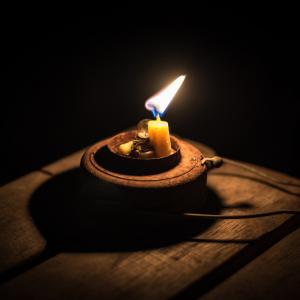
Image via Kokliang/Shutterstock.com
Mass shootings are always and everywhere perverse and twisted events. But the Kansas shooting Feb. 25 that left three victims plus the gunman dead and 16 others injured possessed a few additional layers of perversity.
For one, when I tuned into the GOP presidential debate shortly after hearing news of the shooting, I expected CNN’s debate team to make mention of this newest spasm of random and brutal violence, and maybe even ask the candidates to address the issue. That was, unfortunately, not the case.
Blessings From the Border
A Q+A with Catholic activist Christopher J. Hale
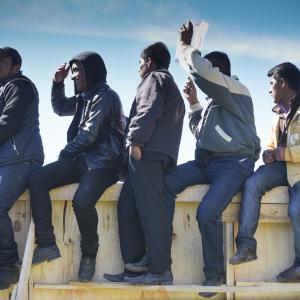
Pope Francis arrives at San Cristobal de las Casas, Mexico, Feb. 15. Image via Aleteia Image Department/Flickr.
The social mission of the Catholic Church can be reduced to the following: God became poor in Jesus Christ to save humanity, and we must do likewise. The social mission of the Catholic Church is about becoming poor for the poor. It communicates who God is, who Jesus is, who we’re called to be. For politics, it reverses things. It turns the world upside down.
Immigration Activists Hope for the Francis Effect
The legislative consequences of Pope Francis’ visit are still to be seen, though Speaker of the House Paul Ryan has vowed to block immigration reform until 2017. Nevertheless, for Andrea Cristina Mercado, who describes her relationship with Catholicism as “fraught,” the Francis Effect is already real.
“He is a really holy, spiritual leader,” she said. “[Pope Francis] drew me back into the church.”
